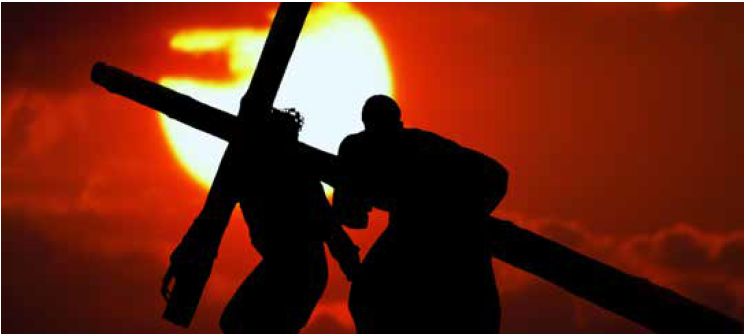Then Jesus told his disciples, “If any wish to come after me, let them deny themselves and take up their cross and follow me. (Matthew 16:24)
Why does the Gospel message bring salvation exclusively through the cross? Why does the brokenness become crucial towards liberation? Do we tend to think that the cross is something we only see at the end of Jesus’ life journey? These are some of the questions with which I would like to begin this reflection.
To deliberate these questions, we may try to recollect what discipleship is according to Jesus. Following Jesus is very crucial in the Christian life. However, Jesus demands something more to be done before we begin to follow him. All four gospels teach about the discipleship of Jesus, and in all four gospels, we found the verse: “If any want to become my followers, let them deny themselves and take up their cross, and follow me.”
Cross and discipleship are the intertwined theological and spiritual realities in the gospels. According to Jesus, only those who deny their own self are eligible to be his disciple. The Greek word used for ‘denying’ means “to hate.” Renouncing one’s identity given by the socio-cultural and religious norms of the time is crucial to becoming a follower of Jesus. Hence, on the one hand, the brokenness experience of a person as being part of the marginalized/victimized/impoverished communities leads his/her journey towards liberation. And on the other hand, everyone who wants to become a disciple of Jesus must experience the brokenness in terms of their self/ identity by adopting the broken identity, which is not of the person’s social, economic or cultural status.
Jesus himself had gone through the experience of giving away his own God-self- identity, embracing the identity of brokenness—as a human, poor, and neglected. Not only his identity/self, but he also embraced the brokenness physically to become the ransom for all.
If there is no brokenness, then there is no (need for) liberation. Any history of liberation begins with the stories of broken experiences of the particular community. On the one hand, for the oppressed societies, the experience of being broken becomes the emancipating tool to rise towards their liberation. And, on the other hand, for the subjugating community, renouncing the society-given privileges/identities becomes the discipleship demand by Jesus.
One more aspect that Jesus demanded of his followers was to carry the cross and follow him. Discipleship is a journey of carrying one’s own cross. Thus, the salvation experience itself begins with the experience of breaking oneself from her/his existing way of life and begin to journey with Jesus. And therefore, discipleship itself is a journey towards and for the liberation of the one who follows and of others with whom s/he is sharing the Gospel.
prayer
God of love who was pleased to be broken through his own Son, we thank you for teaching us the importance of embracing brokenness when we are part of the privileged and when we attempt to journey towards the liberation of ourselves and our communities. Strengthen us to carry our cross and be on the journey of following you in all our circumstances. Amen!
-Vethakani Vedhanayagam
Master’s College of Theology, Vizag



